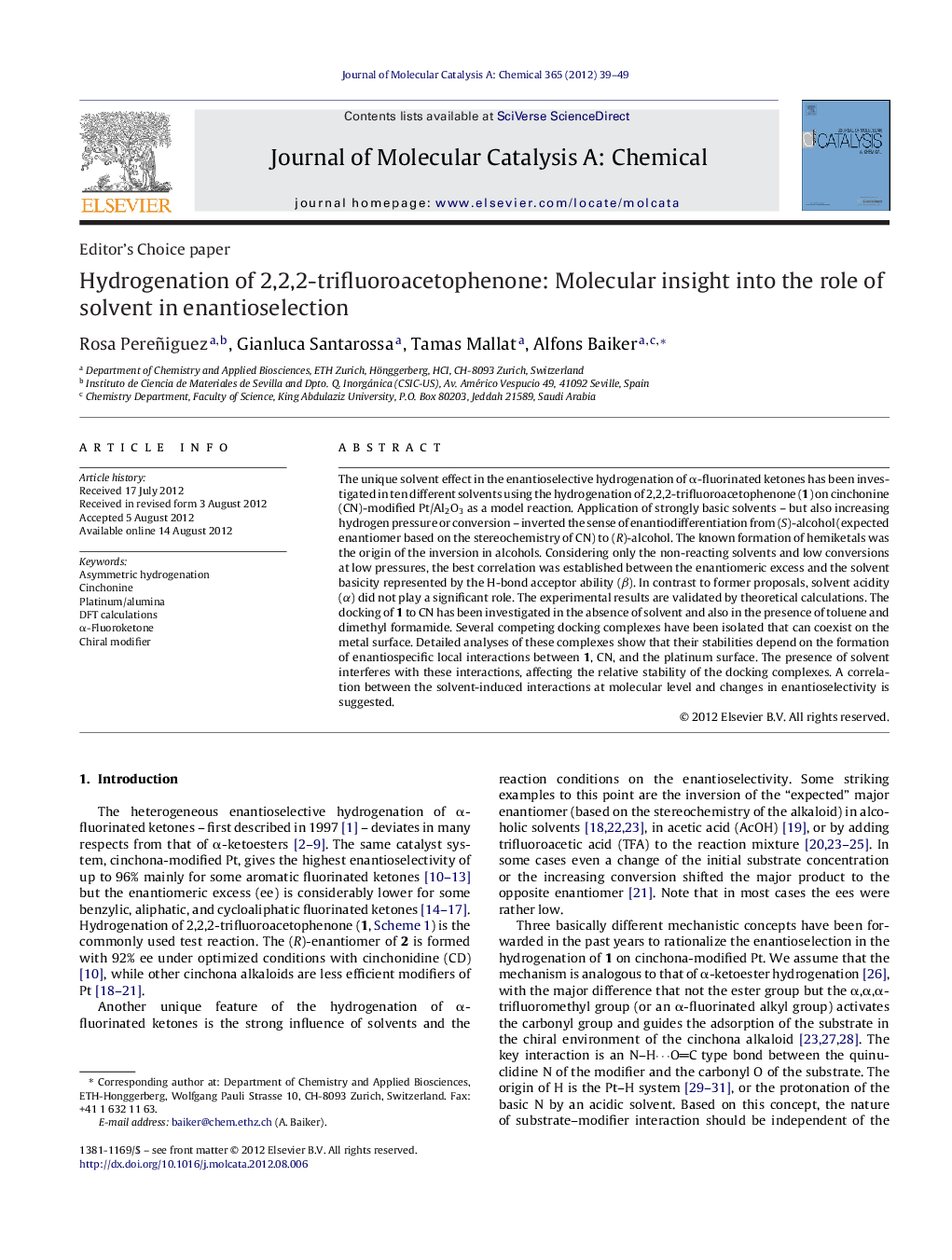| Article ID | Journal | Published Year | Pages | File Type |
|---|---|---|---|---|
| 66076 | Journal of Molecular Catalysis A: Chemical | 2012 | 11 Pages |
The unique solvent effect in the enantioselective hydrogenation of α-fluorinated ketones has been investigated in ten different solvents using the hydrogenation of 2,2,2-trifluoroacetophenone (1) on cinchonine (CN)-modified Pt/Al2O3 as a model reaction. Application of strongly basic solvents – but also increasing hydrogen pressure or conversion – inverted the sense of enantiodifferentiation from (S)-alcohol (expected enantiomer based on the stereochemistry of CN) to (R)-alcohol. The known formation of hemiketals was the origin of the inversion in alcohols. Considering only the non-reacting solvents and low conversions at low pressures, the best correlation was established between the enantiomeric excess and the solvent basicity represented by the H-bond acceptor ability (β). In contrast to former proposals, solvent acidity (α) did not play a significant role. The experimental results are validated by theoretical calculations. The docking of 1 to CN has been investigated in the absence of solvent and also in the presence of toluene and dimethyl formamide. Several competing docking complexes have been isolated that can coexist on the metal surface. Detailed analyses of these complexes show that their stabilities depend on the formation of enantiospecific local interactions between 1, CN, and the platinum surface. The presence of solvent interferes with these interactions, affecting the relative stability of the docking complexes. A correlation between the solvent-induced interactions at molecular level and changes in enantioselectivity is suggested.
Graphical abstractFigure optionsDownload full-size imageDownload high-quality image (299 K)Download as PowerPoint slideHighlights► Hydrogenation of trifluoroacetophenone was studied on cinchonine-modified Pt. ► Strong H-bond acceptor type solvents inverted the product from (S)- to (R)-alcohol. ► Contrary to former proposals, H-bond donation did not play a significant role. ► DFT calculations indicate that DMF affects the stability of docking complexes.
